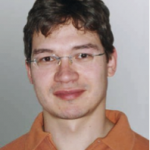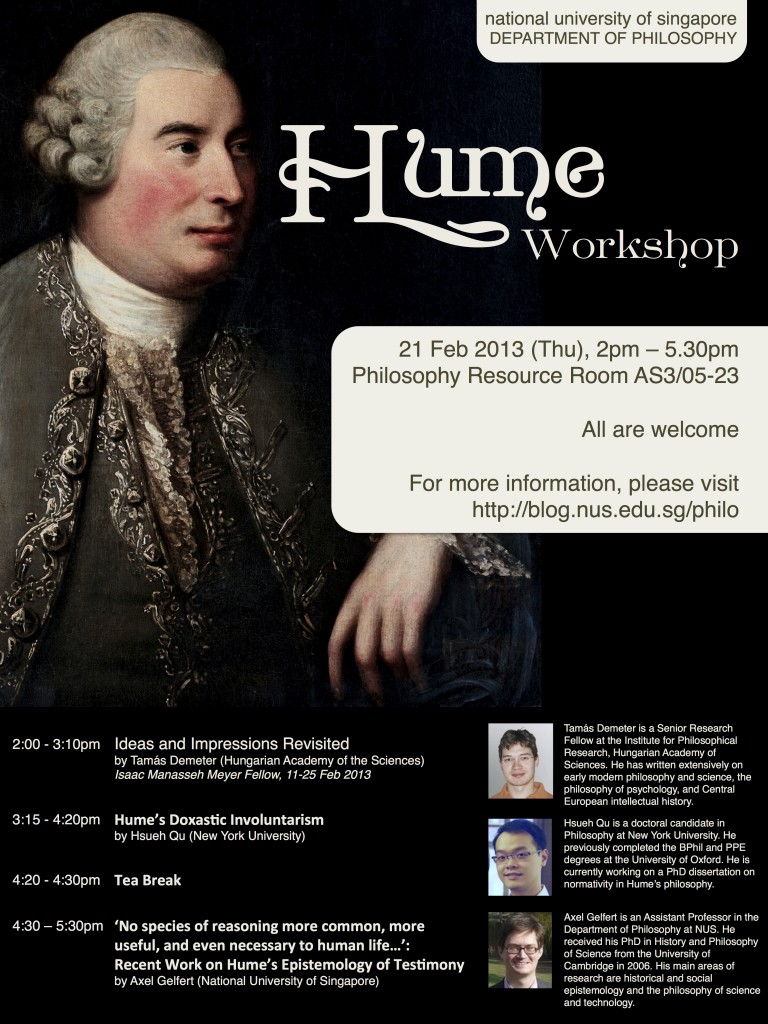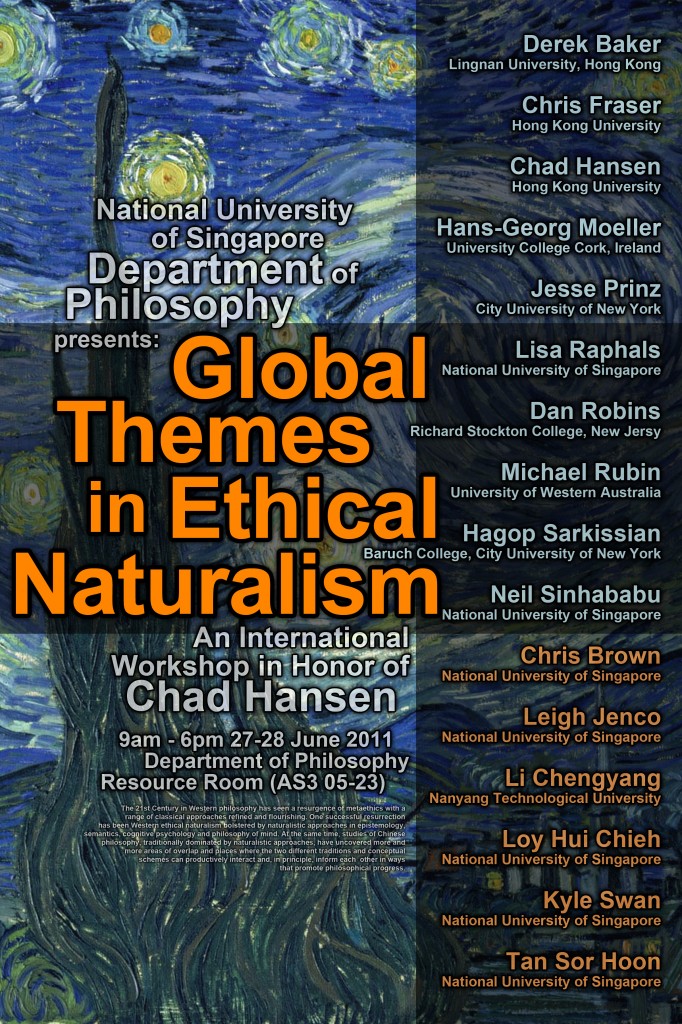The Philosophy Department will be organising a one-day workshop on David Hume:
[Talk 1. 2.00 – 3.10pm]
Ideas and Impressions Revisited by Tamás Demeter (Hungarian Academy of the Sciences), Isaac Manasseh Meyer Fellow, 11-25 Feb 2013
It is probably the first textbook wisdom on Hume’s philosophy that impressions and ideas are not different qualitatively but only in degree, i.e. in their force, liveliness and vivacity. Based on textual evidence, I am going to argue that there is a crucial qualitative distinction to be drawn between the two groups of perceptions: ideas, but not impressions, are distinct and atomistic. In my talk I will illustrate the significance of this difference in relation to the example of the ‘missing shade of blue’, arguing that the example itself presupposes this qualitative distinction. Then I will generalize the consequences of this insight and argue that it has implications fundamental to our understanding of Hume’s psychology as it drives toward a reading of Hume as a faculty psychologist rather than the arch-associationist he is frequently taken to be.
 About the speaker: Tamás Demeter is a Senior Research Fellow at the Institute for Philosophical Research, Hungarian Academy of Sciences. Previously, he taught at the Universities of Miskolc, Budapest (Eötvös University), Cambridge, and Pécs, and has held research fellowships at the Universities of Cambridge, Edinburgh (as a Mellon Visiting Fellow), Helsinki, and Wassenaar. In 2008-2010 he was the Lorenz Krüger Fellow at the Max Planck Institute for the History of Science, Berlin. He has written extensively on early modern philosophy and science, the philosophy of psychology, and Central European intellectual history.
About the speaker: Tamás Demeter is a Senior Research Fellow at the Institute for Philosophical Research, Hungarian Academy of Sciences. Previously, he taught at the Universities of Miskolc, Budapest (Eötvös University), Cambridge, and Pécs, and has held research fellowships at the Universities of Cambridge, Edinburgh (as a Mellon Visiting Fellow), Helsinki, and Wassenaar. In 2008-2010 he was the Lorenz Krüger Fellow at the Max Planck Institute for the History of Science, Berlin. He has written extensively on early modern philosophy and science, the philosophy of psychology, and Central European intellectual history.
–
[Talk 2. 3.15 – 4.20pm]
Hume’s Doxastic Involuntarism by Hsueh Qu (New York University)
In this talk, I examine three mutually inconsistent claims that are commonly attributed to Hume: (a) that all beliefs are involuntary; (b) that some beliefs are subject to normative appraisal; and (c) that ‘ought implies can’. I examine the textual support for such ascription, and the options for dealing with the puzzle posed by their inconsistency. First, I will put forward some evidence that Hume maintains each of the three positions outlined above. I then examine what I call the ‘prior voluntary action’ solution (henceforth PVA) endorsed by Passmore (1980), Norton (1982, 1994, 2002), Falkenstein (1997), Owen (1999), Williams (2004), and McCormick (2005), among others. I argue that PVA in any form fails to account for synchronic rationality. I then raise more specific objections depending on how we disambiguate PVA. PVA can be read as either granting beliefs derivative voluntariness, or as denying their normative significance; the former version fails to satisfactorily accommodate even diachronic evaluations of beliefs, while the latter falls to a regress given Hume’s thesis regarding the inability of actions and passions to possess epistemic normativity. I then briefly propose to reject (c) instead for three reasons: first, the weakness of textual support for such an ascription; secondly, the implications of Hume’s is/ought distinction; and thirdly, Hume’s explicit recognition of the irrelevance of involuntariness to normative evaluation in the moral case.
 About the speaker: Hsueh Qu is a doctoral candidate in Philosophy at New York University. He previously completed the BPhil and PPE degrees at the University of Oxford. He is currently working on a PhD dissertation on normativity in Hume’s philosophy.
About the speaker: Hsueh Qu is a doctoral candidate in Philosophy at New York University. He previously completed the BPhil and PPE degrees at the University of Oxford. He is currently working on a PhD dissertation on normativity in Hume’s philosophy.
–
[Talk 3. 4.30 – 5.30pm]
‘No species of reasoning more common, more useful, and even necessary to human life…’: Recent Work on Hume’s Epistemology of Testimony by Axel Gelfert (National University of Singapore)
Recent years have witnessed a thorough reassessment of Hume’s views concerning one of the most pervasive sources of knowledge: the testimony of others. Traditionally, Hume had been cast in the role of ‘global reductionist’, who demands that each of us must have first-hand, non-testimonial evidence of the reliability of (relevant reference classes of) testimony, before accepting any new instance of it. Indeed, most contemporary epistemologists of testimony –reductionists and anti-reductionists alike – still take it for granted that this is Hume’s position. However, a number of scholars have recently disputed the accuracy of this interpretation of Hume on testimony. The upshot of these new interpretations is that Hume is not nearly as ‘individualistic’ about what constitutes good grounds for empirical knowledge as has traditionally been thought; rather, he is willing to regard testimonial acceptance as a natural (default) response to testimony – given certain general constraints (e.g., exclusion of ‘miraculous’ testimony, prevalence of favourable social conditions, etc.). Support for this reassessment comes from textual evidence (especially if one looks beyond Hume’s Enquiry), Hume’s account of the role of sympathy in belief formation, his take on curiosity as the love of knowledge, and recent attempts to interpret Hume as a virtue epistemologist.
 About the speaker: Axel Gelfert is an Assistant Professor in the Department of Philosophy at NUS. He received his PhD in History and Philosophy of Science from the University of Cambridge in 2006, and has held visiting research fellowships at Collegium Budapest (Institute of Advanced Study) and the University of Edinburgh (Institute for Advanced Studies in the Humanities). His main areas of research are historical and social epistemology and the philosophy of science and technology.
About the speaker: Axel Gelfert is an Assistant Professor in the Department of Philosophy at NUS. He received his PhD in History and Philosophy of Science from the University of Cambridge in 2006, and has held visiting research fellowships at Collegium Budapest (Institute of Advanced Study) and the University of Edinburgh (Institute for Advanced Studies in the Humanities). His main areas of research are historical and social epistemology and the philosophy of science and technology.


 About the Speaker: Gerald Gaus is the James E. Rogers Professor of Philosophy at the University of Arizona, where he directs the program in Philosophy, Politics, Economics & Law. He is the author of a number of books, including On Philosophy, Politics, and Economics (2008), Contemporary Theories of Liberalism (2003), Justificatory Liberalism (1996) and Value and Justification (1990). He was a founding editor of Politics, Philosophy and Economics. His most recent book is The Order of Public Reason, published by Cambridge in 2011. His main area of work is social and political philosophy, though he rejects the dominant highly idealized and objectivist moral suppositions of the field. His work focuses on how a society can achieve a public moral framework that is freely endorsed by diverse normative perspectives. For more, see his website www.gauz.biz.
About the Speaker: Gerald Gaus is the James E. Rogers Professor of Philosophy at the University of Arizona, where he directs the program in Philosophy, Politics, Economics & Law. He is the author of a number of books, including On Philosophy, Politics, and Economics (2008), Contemporary Theories of Liberalism (2003), Justificatory Liberalism (1996) and Value and Justification (1990). He was a founding editor of Politics, Philosophy and Economics. His most recent book is The Order of Public Reason, published by Cambridge in 2011. His main area of work is social and political philosophy, though he rejects the dominant highly idealized and objectivist moral suppositions of the field. His work focuses on how a society can achieve a public moral framework that is freely endorsed by diverse normative perspectives. For more, see his website www.gauz.biz.
